By Rustina, Contributing Writer
Raising four boys and keeping up with this world has been pretty hectic sometimes. It feels like there is never enough time for doing everything. Then, when I take time to browse social media to catch up with friends, I end up comparing my efforts to all those Pinterest-perfect, Tiktok-terrific moments I see. It feels stressful and a bit chaotic sometimes. The last thing I want to worry about after a long day is that my children didn’t get enough nutrition.
With a couple of my quartet being picky eaters and one growing taller than me, I have struggled to find the perfect combination outside of pizza, steak, and baked chicken to keep them all happily fed. I had to find ways to reduce my stress over worrying and their stress over trying to explain they don’t like something; while still making sure they would be getting plenty of nutrition so I started adding super foods to our meals.
It is so easy to add super foods to meals they already like to eat. I start small, giving their palates time to adjust to the new tastes. Slowly building up the amount as my boys get used to the taste. It is easy to just sprinkle some powdered herbs on their plate of food, throw some calming cocoa with herbs in their warm chocolate drink, or mix delicious berries and mushrooms in some applesauce.
Here is a list of 20 super foods that I use to bring in lots of nutrition, reduce stress, and why you will want to use them too!
#1: Kelp
When you need a great source of nutrition, look no further than the vast kelp forests in the water! Kelp is a subgroup of seaweed that encompasses many varieties of brown algae. It is one of the most common types of seaweed and found in both seawater and freshwater.
Nutrition Benefits
Kelp is especially rich in the protein that our body needs to build and repair cells and tissues for our skin, muscle, hair, and bones. Protein is made of amino acids. Amino acids are the very things our bodies need to produce our hormones, grow, develop, heal, digest, and even provide energy!
It is also a great source of fiber, both soluble and insoluble. Soluble fiber feeds our good bacteria promoting better gut health. Insoluble fiber is good because it attracts water to stools making them softer to pass. Fiber also helps regulate hunger and blood sugar levels.
Kelp is also a good source of omega-3 and omega-6 fatty acids. These fatty acids are incredibly important for brain function and development.
Essential minerals in kelp:
- Calcium
- Magnesium
- Potassium
- Chloride
- Sulfate
- Phosphorus
- Iodine
- Iron
- Zinc
- Copper
- Selenium
- Molybdenum
- Manganese
- Boron
- Nickel
- Cobalt
Vitamins:
- A
- B-complex (One of the few vegetarian alternatives for B12)
- C
- D
- E
Function Benefits
Kelp has a high antioxidant volume, especially from carotenoids and polyphenols. Antioxidants protect the cells against damage from “free radicals” – the unstable molecules that form during food breakdown and other conversions. These free radicals can cause heart disease, cancer, premature aging, and other conditions. (source)
Natural pigments of algae are being studied finding antioxidant, anticancer, anti-inflammatory, anti-obesity, neuroprotective, photoprotective, and osteoporosis preventive effects also. (source)
How to Add these Benefits to your Diet
One of the easiest ways to incorporate kelp is in its dried and powdered form. It can be mixed with smoothies, applesauce, used to make homemade crackers, or encapsulated for quick and easy intake. I use these Greens capsules from Earthley – they have dried, loose powder or capsules available – it is made with many of the other foods listed here in it also!
#2: Green Tea
Green tea is one of the oldest and most popular drinks around the world. Green tea comes from the Camellia sinensis plant and is grown mostly in Japan, China and Taiwan. The same plant is used to make black tea, but the processing is different leaving the black tea oxidized and the green tea unoxidized.
Nutrition Benefits
- Protein
- Amino acids – including tryptophan
- Trace elements:
- Magnesium
- Chromium
- Manganese
- Calcium
- Copper
- Zinc
- Iron
- Selenium
- Sodium
- Cobalt
- Nickel
- Vitamin Bs and C
- Many helpful compounds like flavonoids, polyphenols including catechins.
Function Benefits
- One of the great benefits of green tea is that it inhibits cell breakage and encourages antioxidant enzymes including the super antioxidant glutathione! (source)
- Catechins protect cells from free radical damage, chelate redox-active metals, regulate and support immune cells, and manage protein synthesis. (source)
Supports Gut and Immune Health (source):
- From the tryptophan mentioned above, it can promote sleep through supporting melatonin levels. Melatonin affects our immune system, cardiovascular health, and body mass regulation.
- Polyphenols are prebiotic and can help improve the digestive process through their support of healthy gut flora.
- Green tea contains both caffeine and L-theanine. When these are combined this reduces the strong stimulant effect while positively enhancing brain work, cognitive functions, mood, concentration, and decreases blood pressure. (source)
- Anti-inflammatory
- Antioxidant
- Antitumor
- Anticancer
How to Add these Benefits to your Diet
Some ideas to bring green tea into your diet: make some loose leaf tea, use powdered form in smoothies, or encapsulated if the taste isn’t your cup of tea! I use this Greens mix that has green tea, kelp and some of the others below.
#3: Alfalfa
Alfalfa is more than “just grass.” Its leaves and sprouts are full of nutrition and excellent effects.
Nutrition Benefits
- Protein
- Fiber
- Amino acids
- Digestive enzymes
- Vitamins A, B-complex, C, D, E, K
Function Benefits
- Supports proper function in stomach and bowels including ulcers
- Increases the excretion of the body’s steroids and bile to promote better digestive function
- Helps support vessel walls so it is beneficial in blood clotting disorders and thrombocytopenic purpura.
- Heals skin and wound damage
- Reduces total cholesterol
- Neuroprotective
- Antioxidant
- Appetite stimulation
- Antimicrobial
- Anti-inflammatory
- Increasing breast milk, galactagogue
https://www.tandfonline.com/doi/full/10.3109/13880209.2010.504732
How to Add these Benefits to your Diet
Some love the addition of fresh alfalfa sprouts in salads or on sandwiches. It also works to add the dried powder to smoothies or in capsules. I use these Greens capsules – they have dried, loose powder or capsules – mixed with kelp, green tea, and some of the other foods below.
#4: Spirulina
Spirulina is a microorganism (from the family often called blue-green algae) that grows in both salt and freshwater. It is so plentiful in nutrition and benefits, even NASA grows it in space! (source)
Nutrition Benefits
Spirulina has a high protein content as well as many vitamins and minerals.
- Calcium
- Iron
- Magnesium
- Phosphorous
- Potassium
- Sodium
- Vitamin C
- Vitamin Bs – especially B12
- Carotene – The body converts carotene into vitamin A supporting eye health
- Iron
Function Benefits
- Detoxes heavy metals
- Lowers blood sugar
- Lowers blood pressure
- Decrease in cholesterol and triglycerides
- Restrains the growth of some Gram-negative bacteria (E coli, Pseudomonas aeruginosa, and Proteus vulgaris) and Gram-positive bacteria (Staphylococcus aureus, Bacillus subtilis, and Bacillus pumulis) (source)
- A study with Non Alcoholic Fatty Liver Disease patients showed positive metabolic changes and improved quality of life when patients regularly consumed spirulina. (source)
Gut and Immune support (source):
- Antihistamine
- Antimicrobial
- Prebiotic to support gut health
- Enables production of B6
- Antiviral
- Anticancer
- Antioxidant
How to Add these Benefits to your Diet
Spirulina is fun to add to your drinks with its deep blue-green pigment! Some like just drinking it with plain, filtered water or in a glass of juice. It also works to add the dried powder to smoothies or in capsules. I use this one from Earthley – they have dried, loose powder or capsules – it is mixed with kelp, green tea, alfalfa, and some of the other foods below.
#5: Spinach
Spinach has long been recognized as a super food, but sadly overall consumption is still fairly low. It is an easy plant to grow and offers a longer harvest time since it likes cooler weather. I live in WI and have been able to harvest even in December some years.
Nutrition Benefits
- High in protein
- High in fiber
- Minerals
- Iron
- Manganese
- Zinc
- Magnesium
- Vitamins: E, A, Bs, C, and K.
Function Benefits
- Induces satiety hormones to reduce appetite
- Repairs DNA damage in genes involved in metabolism, inflammation, and antioxidant activity.
- Prevents oxidative damage to macromolecular structures such as chromosomal DNA, protein structures, and enzymes (source)
- One study even suggests that strawberries and spinach powder taken regularly may help delay mild cognitive decline. (source)
Gut and immune Support (source):
- Antimicrobial
- Anti-inflammatory
- Anticancer
- Antioxidant
How to Add these Benefits to your Diet
Spinach is easy to add in a salad, on a sandwich, or even throw on top of your pizza! It also works to add to smoothies or in capsules. My favorites: 1) fresh spinach in a bowl topped with applesauce and the superfood powder also from Earthley and 2) the Greens capsules that have kelp, green tea, alfalfa, spirulina, and lemon balm also.
#6: Lemon Balm
Stress can feel overwhelming and everywhere it seems, how about a super food that helps to reduce stress, increase calmness, and let you rest easier? Lemon Balm is an amazing herb!
Nutrition Benefits
While lemon balm, or melissa officinalis, does not boast a long nutrition list, it is very rich in antioxidants such as:
- Phenolic acid
- Rosmarinic acid
- Caffeic acid
- Terpenes
- There are trace amounts of
- Vitamin Bs
- Iron
- Calcium
- Potassium
- Magnesium
- Zinc
Function Benefits
Cognitive Benefits (source):
- Has been used as an effective, mild sedative and sleep aid for a long time.
- Improved memory function
- Increased calmness
- Decreases symptoms of nervous disorders like excitability, anxiety, and stress
- Anti-agitation
- Study found taking lemon balm helped participants be less socially withdrawn and more engaging than the placebo group.
Gut and Immune Support
When we are feeling ill or discouraged, we need help in multiple ways. Lemon balm is great to help because it provides a calming effect while reducing risk of infections and inflammation so recovery can get started in multiple ways.
- Antioxidant (may provide some protection against the damage in dementia) (source)
- Antibacterial
- Antiviral
- Antihistamine
- Anti-inflammatory
- Neuro-Muscular Actions (source):
- Neurologic antispasmodic
- Digestive antispasmodic
- Anti-nausea
How to Add these Benefits to your Diet
Lemon balm adds a nice touch to salads or tea. It also works to add to smoothies or in capsules. The Greens capsules I have mentioned, are made with kelp, green tea, alfalfa, spirulina, spinach, and lemon balm (no fillers, no sweeteners, just good, natural, health supporting foods).
#7: Cocoa
This legendary super food does not need much of an introduction, but did you know about all of these benefits?
Nutrition Benefits
According to the USDA’s Food Data information, dried, unsweetened cocoa has high levels of protein and fiber. It is also a good source of:
- Magnesium
- Manganese
- Calcium
- Iron
- Phosphorus
- Potassium
- Zinc
- Copper
- Selenium
- Vitamin B’s folate
Function Benefit
Cocoa has a positive, calming effect on satiety, cognitive function, and mood (source)
- Contains polyphenols that support the body’s defenses against cardiovascular and inflammatory diseases, metabolic disorders, cancer, and supports gut health.
- Modifies the glycemic response and the lipids
- Regulates intestinal inflammation to decrease in the production of pro-inflammatory enzymes and cytokines.
- Antioxidant
- Anti-mutagenic
- Anti-inflammatory
- Antioxidant and resistance to oxidative stress
- Shows decreased insulin resistance and increased insulin sensitivity
- Decrease systolic and diastolic blood pressure
- Supports circulation
- Helps support skin tone and elasticity
How to Add these Benefits to your Diet
Cocoa has many fun options that make it easy to incorporate. Mixed in desserts, mix with water or milk of your choice, on homemade ice cream, in smoothies, or even sprinkled on top of fresh fruit! The hard part can be finding a nice healthy cocoa powder that isn’t filled with sweeteners. Thankfully, Earthley has made a cocoa powder mix called Cocoa Calm that also has 3 adaptogenic herbs in it!
#8: Ashwagandha
The roots of Ashwagandha have been used for a long time in Ayurvedic medicine (a 3,000 year old practice studying the knowledge of life in India). After learning more about its amazing benefits, it has become more popular throughout the world.
Nutrition Benefits
- A good source of Fiber
- Carotene
- Calcium
- Iron
- Vitamin C
Function Benefits
Ashwagandha is an adaptogenic herb. That means it improves one’s response to stress by helping the body adapt its physiological processes.
Ways that this herb adapts the body’s response (source):
- It doesn’t just reduce existing stress, but also resists new stress as well.
- Improves sleep quality.
- Neuroprotective – protects and repairs nervous system’s cells, functions, and structures.
- Memory Enhancing
- Anxiolytic – reduces anxiety
- Helps maintain testosterone levels
- Enhances cognitive ability for those with impairment
- Boosts cardiorespiratory endurance
- Study (link below) showed it reduced the serum cortisol levels
Gut and Immune Support
- Anti-inflammatory
- Antioxidant
- Stimulates hematopoietic stem cells (also called blood stem cells). These can become any needed blood cell: White blood cell, Red blood cells, or platelets. www.ncbi.nlm.nih.gov/pmc/articles/PMC6979308/
How to Add these Benefits to your Diet
Ashwagandha root is easiest to add to your diet in powdered form or in a tincture. Some like to mix it with warm milk and a date for sweetening it. I incorporate it with Cocoa Calm – a tasty cocoa powder mix with just cocoa, ashwagandha, and 2 other adaptogenic herbs from below.
#9: Rhodiola
Rhodiola has been used by herbalists and athletes for a long time, and the great results are making it become more widely known. While the plant is edible and has many benefits, its roots really take the stage with over 140 active ingredients supporting the body’s nutritional and functional needs! It is a fairly rare plant and highly valued.
Nutrition Benefits
The main nutritional value in rhodiola comes from its many compounds that support the cell functions. Some of these active ingredients in rhodiola:
- Rosarin – reduces fatigue, improves mental and physical endurance (source)
- Rosavin – protects against bone loss by inhibiting osteoclast (source)
- Salidroside – neuroprotective and reduces inflammation (source)
- Tyrosol – may protect against cognitive disturbances especially in dementia (source)
- Rhodionin – a binding protein receptor in the retinas (source)
- Catechin
- Gallic acid
Function Benefits
- Enhances natural resistance to physical and behavioral stresses to help fight off fatigue and depression.
- Anti-aging
- Enhances DNA repairs
- Improves normal physiological functions (source)
Gut and Immune Support (source):
- Anti-cancer
- Adaptogenic (Anti-stress)
- Provides immune system support, anti-viral
- Antioxidant
- Helps with high altitude sickness
- Astringent
- Anti-inflammatory
How to Add these Benefits to your Diet
While some like toasted roots in their salads, rhodiola is easiest to add in with a powdered form or in a tincture. I add it to my diet with Cocoa Calm – a tasty cocoa powder mix with just cocoa, ashwagandha, rhodiola, and the next adaptogenic herb.
#10: Eleuthero
Eleuthero has been used for a long time in Asia. While it is called Siberian Ginseng, it is not related to the American or Panax ginseng. It has many benefits that are making it become increasingly more popular.
Benefits
Eleutheroside E is a unique component in eleuthero and has been found to relieve behavioral alterations due to sleep deprivation. (source)
It is a powerful tonic herb that promotes overall well being and good energy levels through several different functions:
- Helps strengthen muscle and bones – especially helpful in bone metabolism diseases
- Anti-inflammatory
- Anti-tumor
- Anti-depressive
- Anti-steatosis (helps reduce fat retention)
- Neuroprotective (source)
- Helps with physical, mental, and stress induced chronic fatigue (source)
- Eleuthero has also shown to improve lymphatic function, reducing overall edema (source)
How to Add these Benefits to your Diet
Just like the rhodiola, some may like toasted roots in their salads, but eleuthero root is easiest to add in with a powdered form or in a tincture. I add it to my diet with Cocoa Calm – a tasty cocoa powder mix that has eleuthero mixed with cocoa powder, ashwagandha, and rhodiola.
#11: Acai
Acai berries were found in the Amazon floodplain in Brazil, and they have very helpful nutrients and supporting benefits.
Nutrition Benefits
High amounts of:
- Vitamin A, C, and E
- Fiber
- Polyphenols
- Metabolites, such as anthocyanins and proanthocyanidins
- Minerals: Potassium, Calcium, Cadmium, Magnesium, Iron, and Manganese
Function Benefits
- Antioxidant
- Anti-inflammatory
- Anti-cancer
- Regulates the immune system
- Has indicated it can reduce the adiposity (fat storage) in obesity with mice
- The phenolic properties suggest it may be helpful against Non Alcoholic Fatty Liver Disease
- Showed an absence of significant DNA and chromosome damage when treated with açai extract (source)
- Promotes wound healing (source)
How to Add these Benefits to your Diet
You can add Acai berries to yogurts, granola, salads, or just eat them all plain! If keeping them regularly on hand fresh is a struggle, you can get them in a powdered mix called Superfood Powder from Earthley. It has the super foods listed below in it as well!
While the next three may be considered common in availability, they are very helpful berries! Easy access to these fresh, organic berries makes them a perfect addition to any diet!
#12: Blueberry
Nutrition Benefits
While blueberries may be small, they can fit a lot in there:
- About 1 gram per cup of Protein and 6 of the 9 essential amino acids
- Fiber
- Calcium
- Vitamin A
- Vitamin C
- Trace amounts of
- Magnesium
- Potassium
- Phosphorus
- Iron
- Calcium
- Zinc
- Copper
- Selenium
- Vitamins B and E
Function Benefits
- Reduced risk of cardiovascular disease and type 2 diabetes
- Improved weight maintenance
- Neuroprotective
- Anti-inflammatory
- Antioxidant
- Supports cardiovascular and vascular health
- Regulates glucose metabolism
- Supports gut microflora (source)
How to Add these Benefits to your Diet
Blueberries are great in salads, all by themselves, or as a topping on just about anything! If keeping them regularly on hand fresh is a struggle, you can get them in a powdered mix called Superfood Powder from Earthley. It has acai and the super foods listed below also!
#13: Raspberry
Nutrition Benefits
- Fiber
- Great source of Vitamin C
- Vitamin K
- Vitamin Bs
- Vitamin E
- Magnesium
- Potassium
- Rich in Manganese
- Calcium
- Iron
- Copper
- Quercetin
- Polyphenols
Function Benefits
Quercetin is helpful for both the immune system and gut health. It has been shown to support the immune system through modulating inflammation responses and can suppress the immune system as well. Quercetin supports gut health through regulating inflammation and increasing the mucus linings in the digestive tract to protect the cells of the digestive walls. (source)
Studies have shown that raspberry consumption helped to lower blood pressure, improve lipid balance, helped vascular function, and improved diabetic symptoms. (source)
Other immune and gut health supporting functions:
- Antioxidant
- Anti-inflammatory
- Antimicrobial
How to Add these Benefits to your Diet
I love adding raspberries to everything: salads, granola, desserts, yogurt, or just all by themselves. If keeping them regularly on hand fresh is a struggle, you can get them in a powdered mix called Superfood Powder from Earthley. It has acai, blueberries, and the super foods listed below also!
#14: Strawberry
Nutrition Benefits
- Great source of vitamin C
- Calcium
- Magnesium
- Fiber
- Manganese
- Vitamin B
- Potassium
- Some protein
- Vitamin E
- Trace elements of copper, iron, selenium, and zinc
- Polyphenols – especially anthocyanins
Function Benefits
- Anthocyanins have been strongly associated with improved cardiovascular health.
- Improves insulin resistance
- Regular consumption has shown to reduce total and LDL cholesterol
- Bioactive compounds in strawberries have shown to lower cardiometabolic risks as well (source)
- Antioxidant
- Improved glutathione levels (source)
How to Add these Benefits to your Diet
Strawberries are one of my favorite foods. They go great on salads, granola, applesauce, yogurt, fresh mashed jams with a touch of stevia, or just all by themselves. If keeping them regularly on hand fresh is a struggle, you can get them in a powdered mix called Superfood Powder from Earthley. It has Acai, Blueberries, Raspberries, and the super foods listed below also!
#15: Tart Cherry
This popular fruit has a lot of benefits to offer.
Nutrition Benefits
- Good source of fiber to help support your gut health
- Carotenoids
- Vitamin C
- Potassium
Function Benefits
- Anti-inflammatory
- Antioxidant
- Lowers cardiovascular risks and blood pressure (source)
- Increases melatonin levels to improve your sleep (source)
How to Add these Benefits to your Diet
Tart Cherries can be turned into a juice to drink before bedtime or just eat them fresh! If keeping them regularly on hand fresh is a struggle, you can get them in a powdered mix called Superfood Powder from Earthley. It has acai, blueberries, raspberries, strawberries, and the super foods listed below also!
#16: Beet
Beets have been considered a super food for quite a few years. While they are great for using as color dyes, they also offer some great benefits.
Nutrition Benefits
- Protein
- Fiber
- Manganese
- Copper
- Potassium
- Magnesium
- Vitamin C
- Vitamin B
- Iron
Function Benefits
- Reduces risk of Metabolic disorders like hypertension, diabetes, insulin resistance, and kidney dysfunction.
- Reduce systolic and diastolic blood pressure
- Inhibit platelet aggregation
- Improve vascular and endothelial (membrane inside the heart and blood vessels) function
- Reduce blood glucose
- Improve insulin homeostasis
- Kidney protective properties (source)
- Antioxidant
- Improves cognitive function
- Supports kidneys and liver
- Protects against infection with Escherichia coli, Pseudomonas aeruginosa, and Citrobacter freundii (source)
How to Add these Benefits to your Diet
Beets are so colorful to add to juices and smoothies, but they are also good on salads or roasted with a bit of olive oil and sea salt. If keeping them regularly on hand fresh is a struggle, you can get them in a powdered mix called Superfood Powder from Earthley. It has acai, blueberries, raspberries, strawberries, tart cherries, and the super foods listed below also!
#17: Cranberry
Nutrition Benefits
- Fiber
- Vitamin C
- Manganese
- Vitamin E
- Vitamin K
- Copper
- Quercetin
- Catechins
- Polyphenols
Function Benefits
- High in Antioxidants
- Polyphenols have antimicrobial and antioxidant properties (source)
- Anti- inflammatory, antitumor and anticancer activities from the oleanic acid found in the skin (source)
- High in proanthocyanidins
- Suppresses the H Pylori bacteria activity (source)
- Prevents against tooth decay and periodontitis from the polyphenols and the proteolytic acid (source)
- Antimicrobial, antifungal, and antiviral properties limit:
- Helicobacter pylori
- Streptococcus mutans
- Porphyromonas gingivalis
- Staphylococcus aureus
- Pseudomonas aeruginosa
- Cryptococcus neoformans
- Haemophilus influenzae
- Candida albicans
- Escherichia coli
- Oral cavities (source)
- Reduces homocysteine levels that cause inflammation in the blood (source)
How to Add these Benefits to your Diet
Cranberry juice is especially helpful to add to your diet or just add dried cranberries to salads or trail mixes. If keeping them regularly on hand fresh is a struggle, you can get them in a powdered mix called Superfood Powder from Earthley. It has acai, blueberries, raspberries, strawberries, tart cherries, beets, and the super foods listed below also!
#18: Ginger Root
Nutrition Benefits
- Some Fiber
- Calcium
- Phosphorus
- Potassium
- Magnesium
- Trace amounts of : Zinc, Copper, Manganese, Vitamins B and C
Function Benefits
- Noteworthy reductions in pain and disability with Osteoarthritis sufferers (source)
- Gingerol (one of the most abundant bioactive compounds in ginger) is a potent anti-inflammatory and antioxidant
- Reduces oxidative stress
- Anti-cancer potential (source)
- Antioxidants and other compounds in ginger may reduce inflammatory activity that are associated with Alzheimer’s (source)
- Reduce nausea and vomiting (source)
- Lowers blood sugar levels (source)
-
Reduces indigestion, “constipation, diarrhea, dyspepsia, belching, bloating, gastritis, epigastric discomfort, gastric ulcerations, indigestion, nausea, and vomiting” (source)
How to Add these Benefits to your Diet
I started adding sweetened “ginger chips” to my diet during my first pregnancy, but now, I find adding fresh ginger to juices, smoothies, kombucha, and tea is easier. It also goes well with salads and baking recipes. If keeping it regularly on hand fresh is a struggle, you can get them in a mix called Superfood Powder from Earthley. It has acai, blueberries, raspberries, strawberries, tart cherries, beets, cranberries, and the super foods listed below also!
#19: Burdock Root
Nutrition Benefits
- Some protein
- Fiber
- Potassium
- Magnesium
- Calcium
- Vitamin Bs
- Trace amounts of: Iron, Copper, Zinc, Selenium, and Vitamin C
Function Benefits
- Physical performance improvement –showed muscle improvement when no training protocol is implemented as well as reduced oxidative stress and decreased muscle damage reducing fatigue (source)
- Supports Gut and Immune Health
- Rich in fibers that are prebiotic to support gut health
- fructooligosaccharides have shown to enhance the immune system in response of respiratory viral diseases (source)
- Many positive effects and stem cell enhancement
- anti-oxidative, anti-inflammatory, anti-cancer, and anti-microbial activities
- enhances cartilage growth through stem cells (source)
- Increases fluid output supporting lymphatic system and urinary tract clearing (source)
- Helps to purify blood (source)
How to Add these Benefits to your Diet
The easiest way to add burdock root is in dried powder or tincture form. I use a mix called Superfood Powder from Earthley. It has acai, blueberries, raspberries, strawberries, tart cherries, beets, cranberries, ginger root, and chaga mushrooms also!
#20: Chaga Mushroom
Not everyone loves mushrooms, but they are great additions to our diet for their nutrition and helpful benefits.
Nutrition Benefits
- Some Protein
- Fiber
- Potassium
- Choline
- Phosphorus
- Magnesium
- Trace amounts of: Iron, Copper, Zinc, Selenium, and Vitamin C
Function Benefits
- Reduce inflammation especially in the gut and defend against harmful bacteria (source)
- Stimulates special proteins (cytokines) that promote white blood cells to fight off harmful bacteria or viruses (source)
- Reduces the rate which cancer cells reproduced (source)
- Improved blood sugar levels and insulin resistance (which is especially helpful for those suffering from PCOS and diabetes) (source)
How to Add these Benefits to your Diet
Add chaga mushrooms to your diet by cooking them whole with herbs or a sauce, mix powder in smoothies, or as a tincture. I use a mix called Superfood Powder from Earthley. It has acai, blueberries, raspberries, strawberries, tart cherries, beets, cranberries, ginger root, and burdock root also!
Ensuring you have plenty of nutrition in your diet, and your family’s diet, is so important. It helps us all grow and heal so we can live a happier, calmer life.
Looking for recipes? Try this free Nourished Living Cookbook!

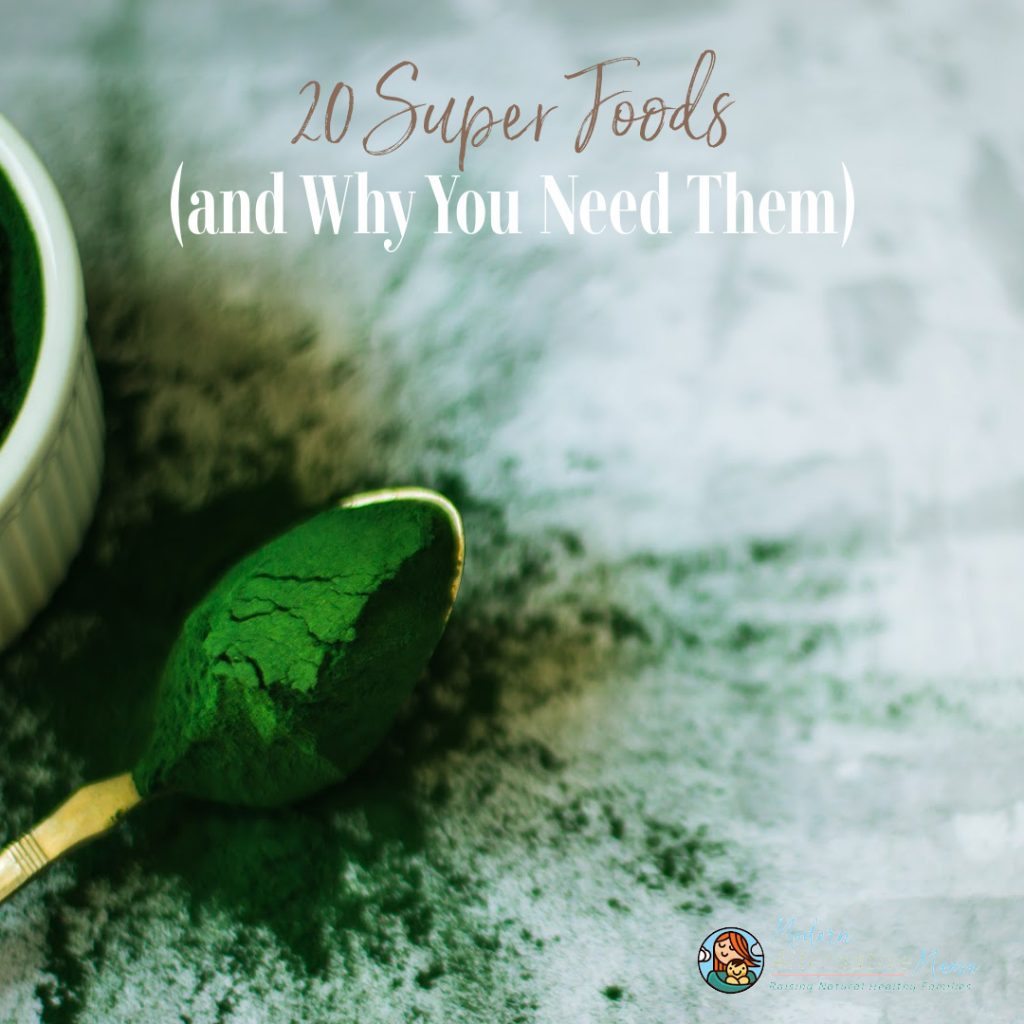
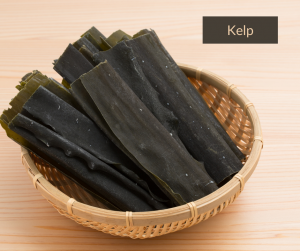
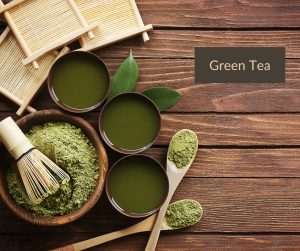

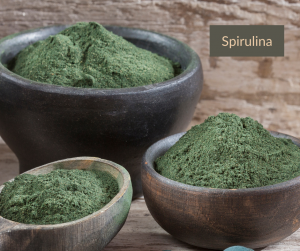
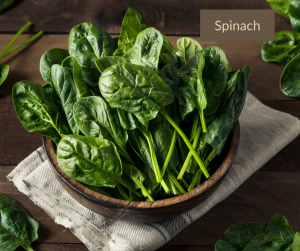
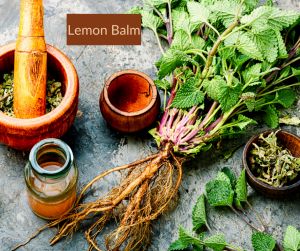
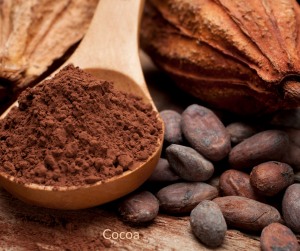
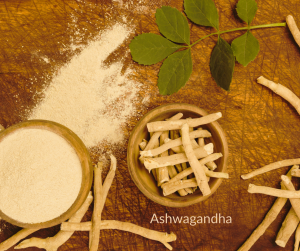
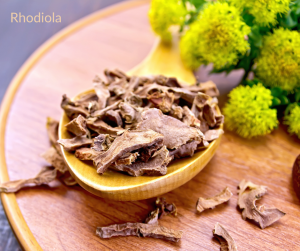
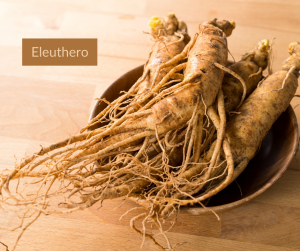
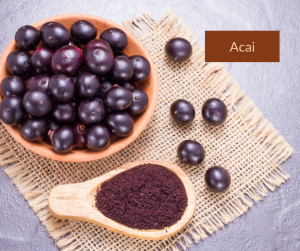
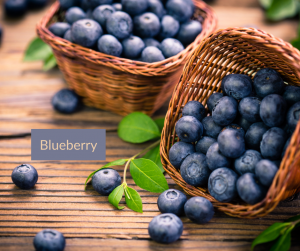
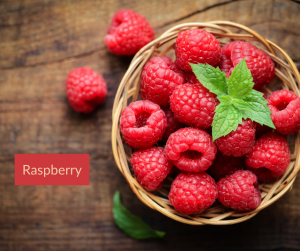
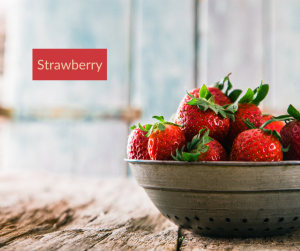
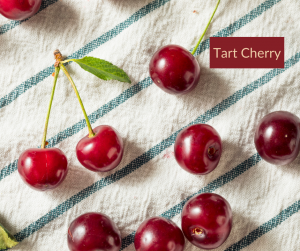
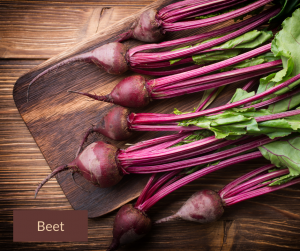
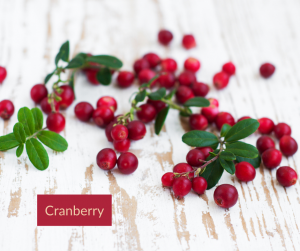
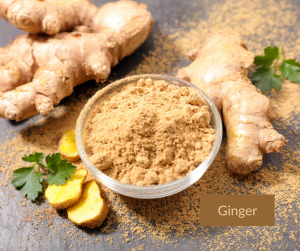

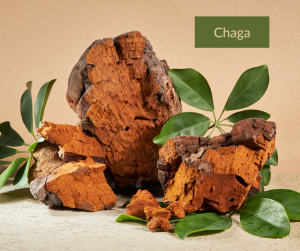





There were a couple I have never heard of such as chaga mushroom and rhodiola. It was interesting to learn about all these superfoods and their benefits.
We are glad that you enjoyed reading about these foods!